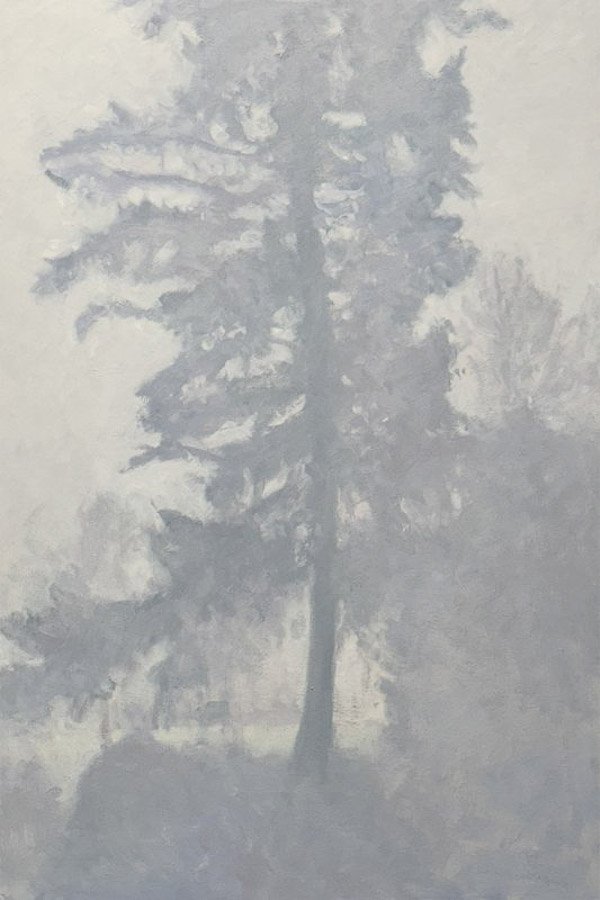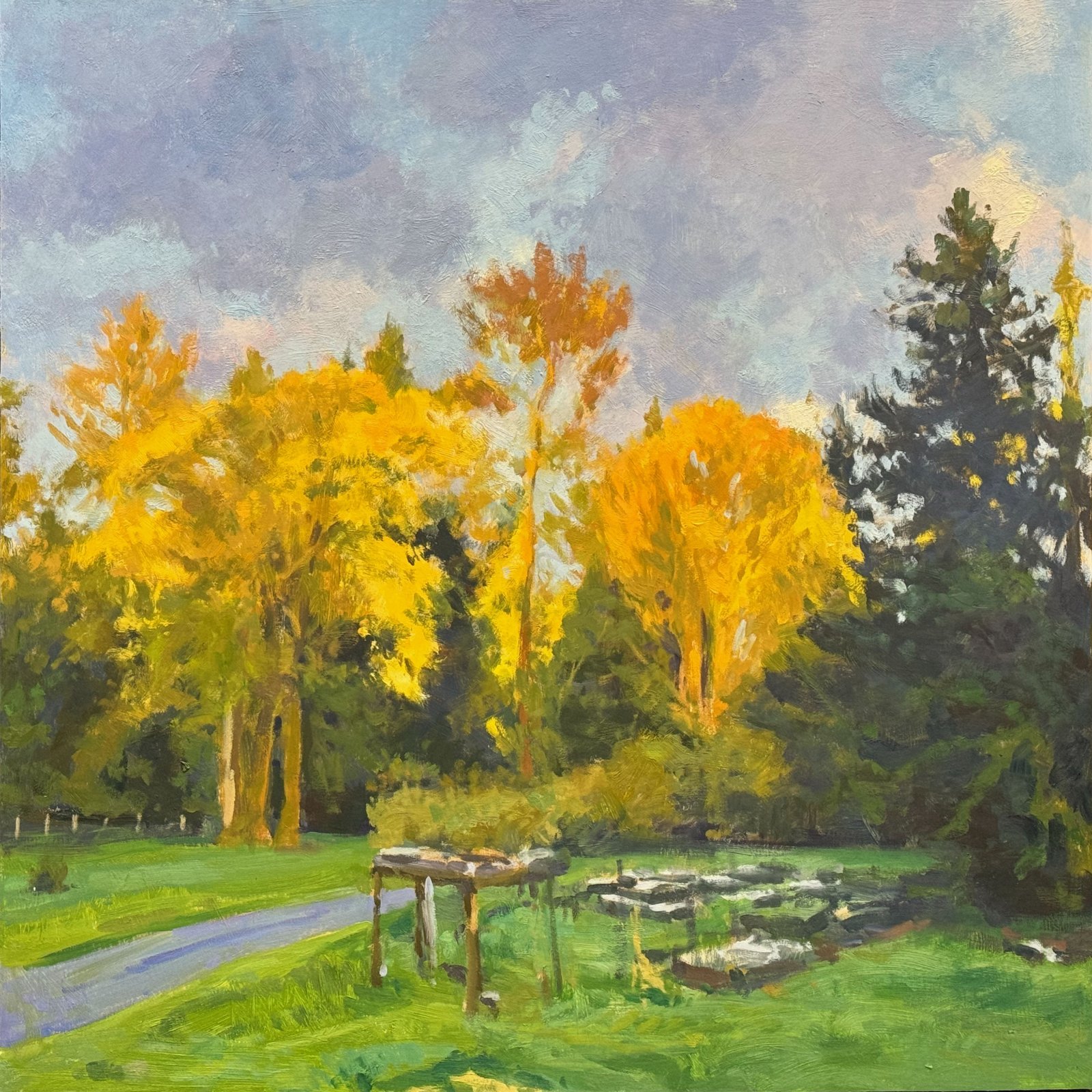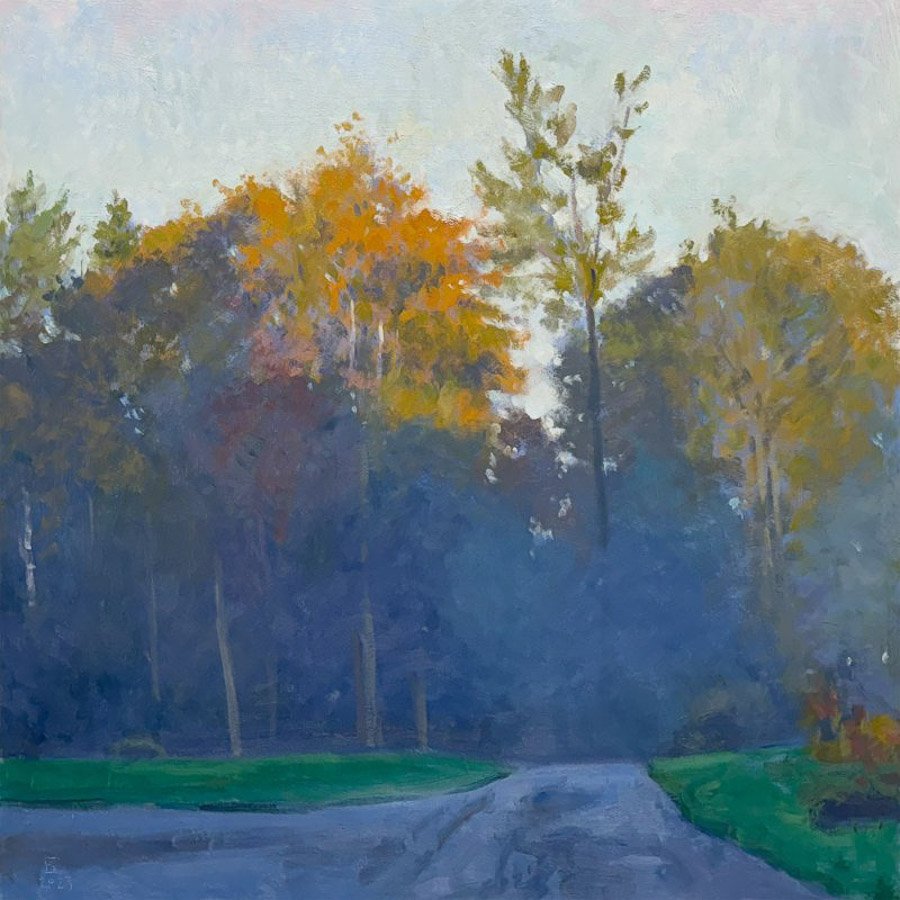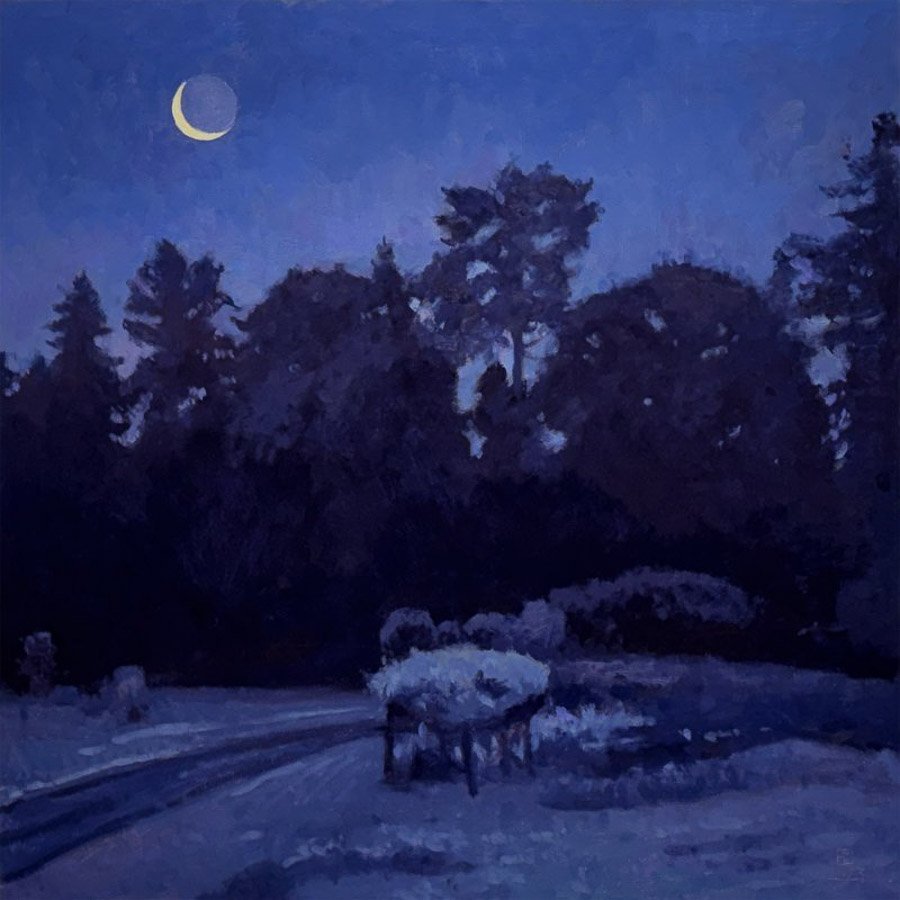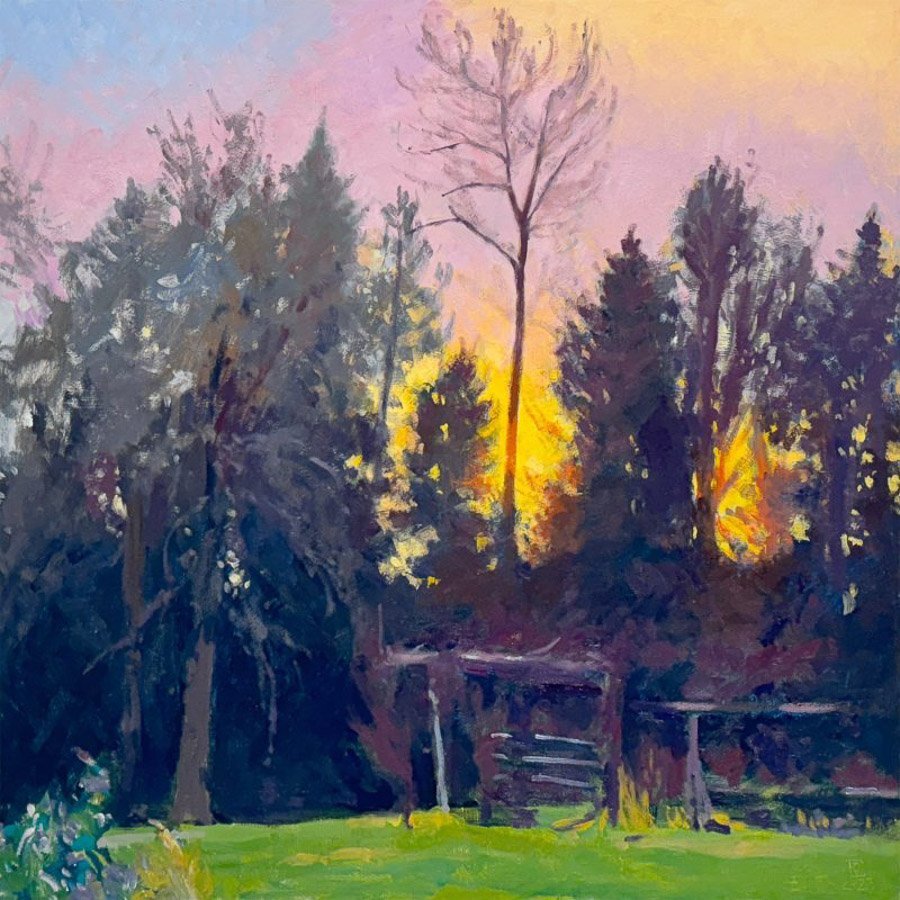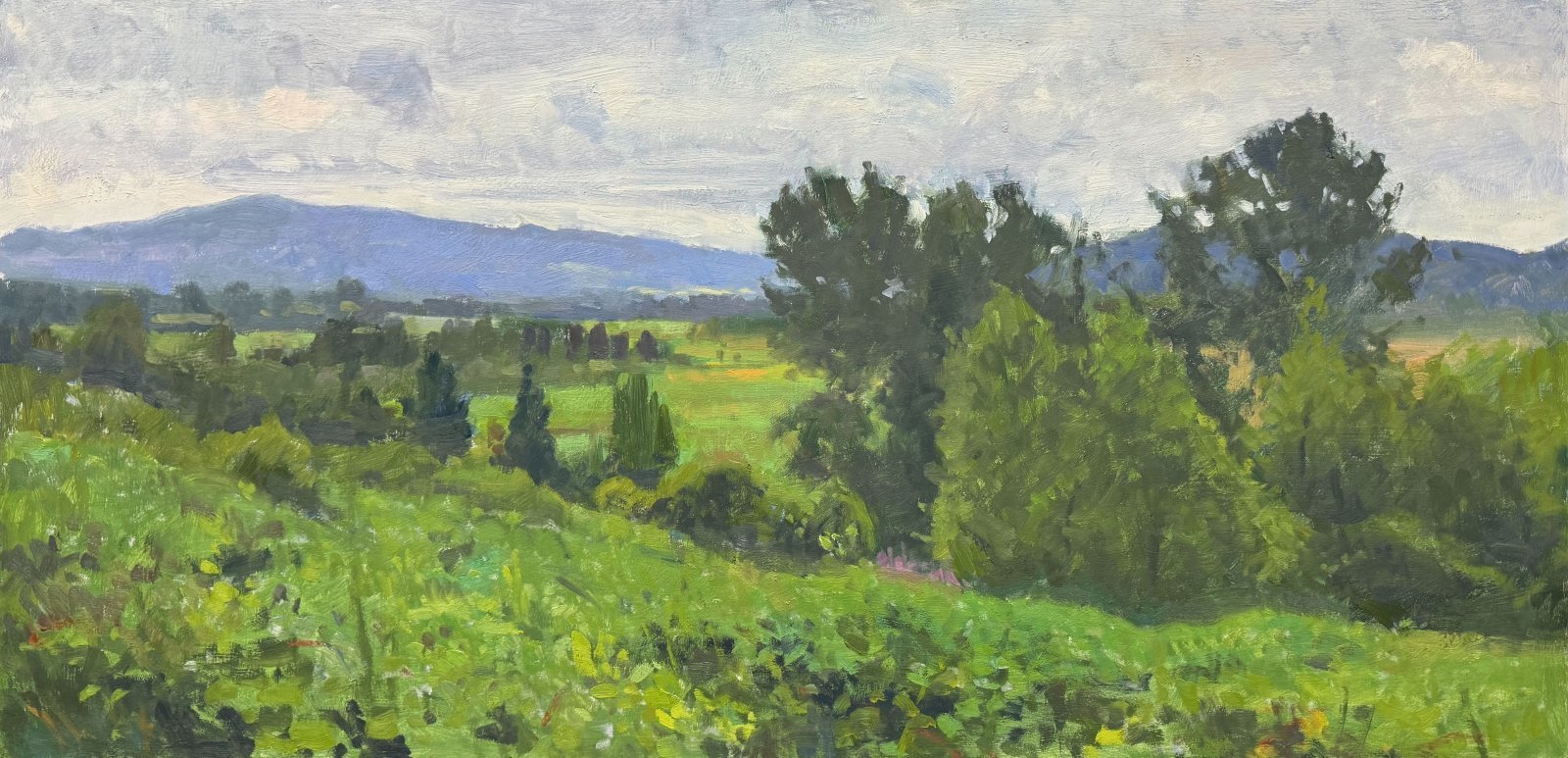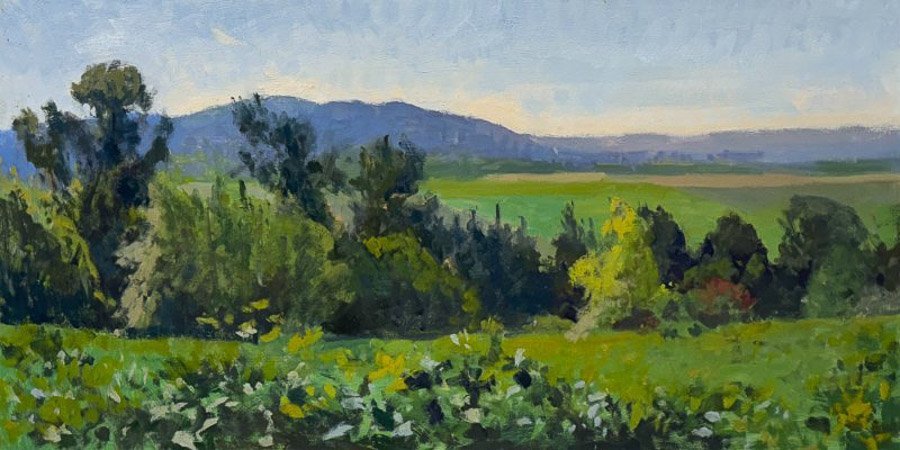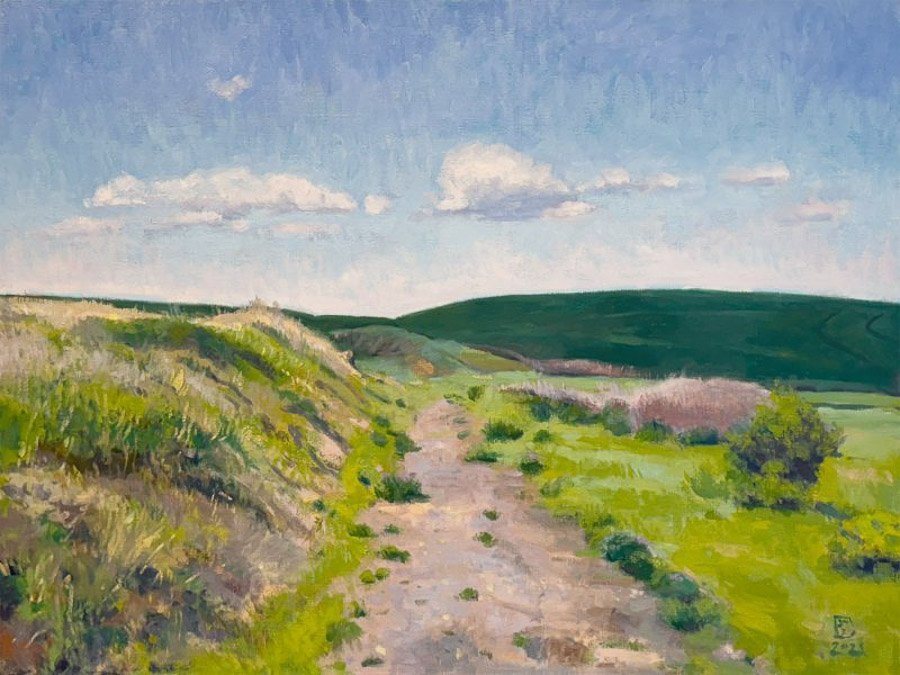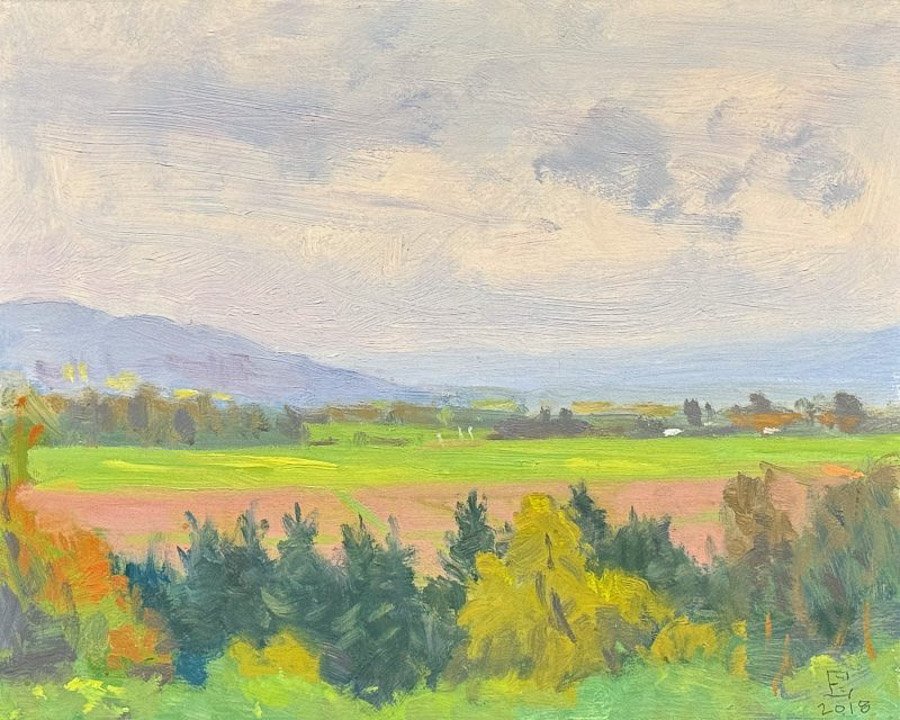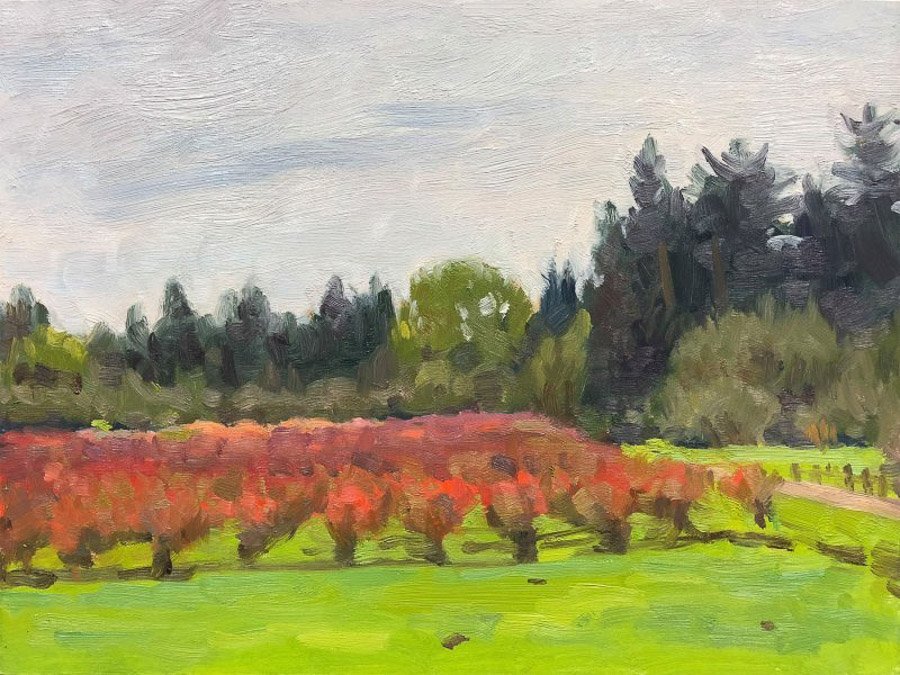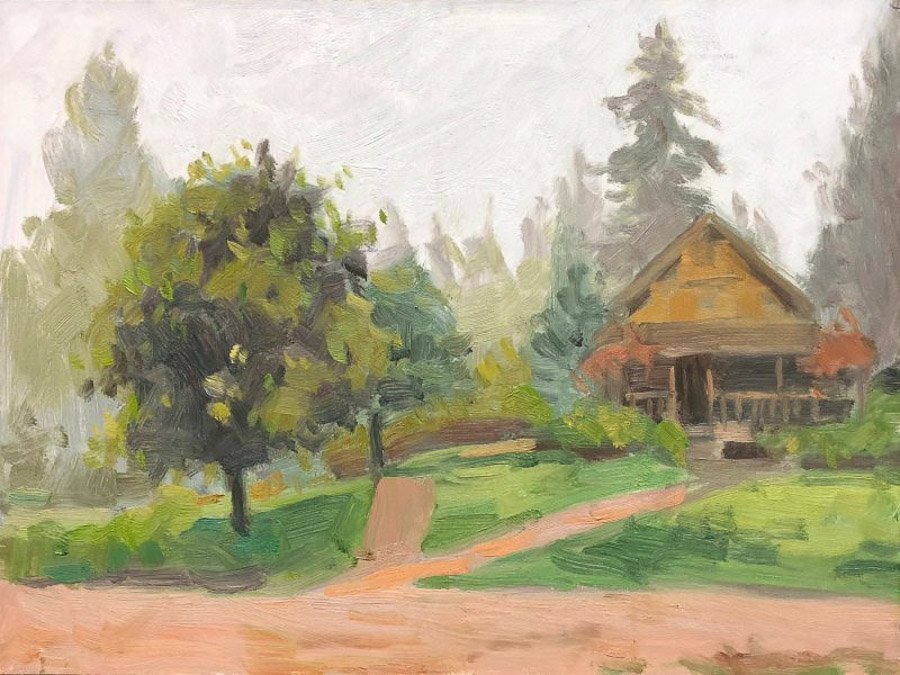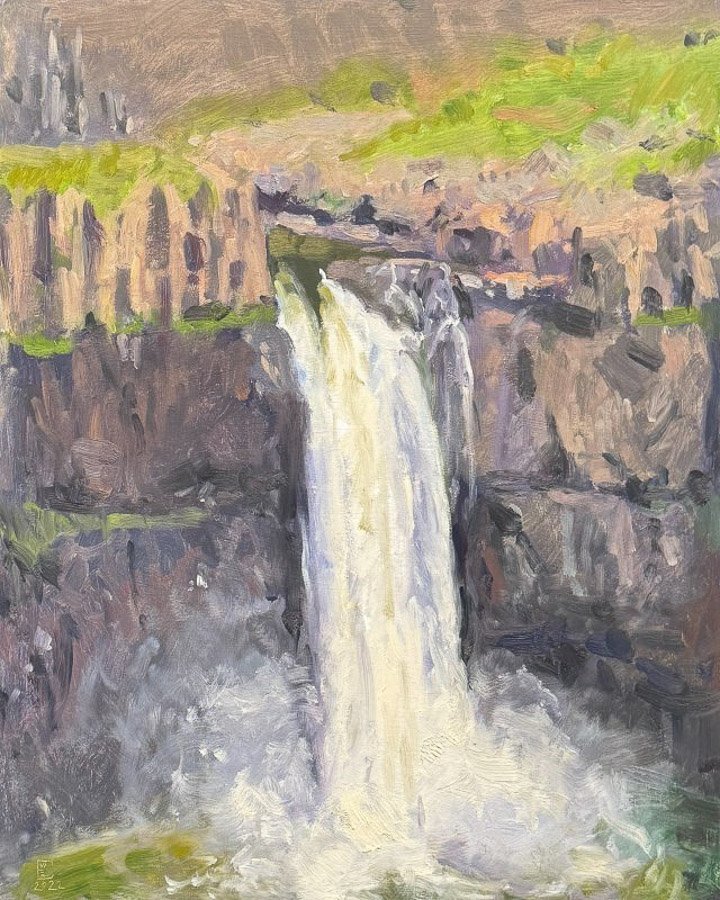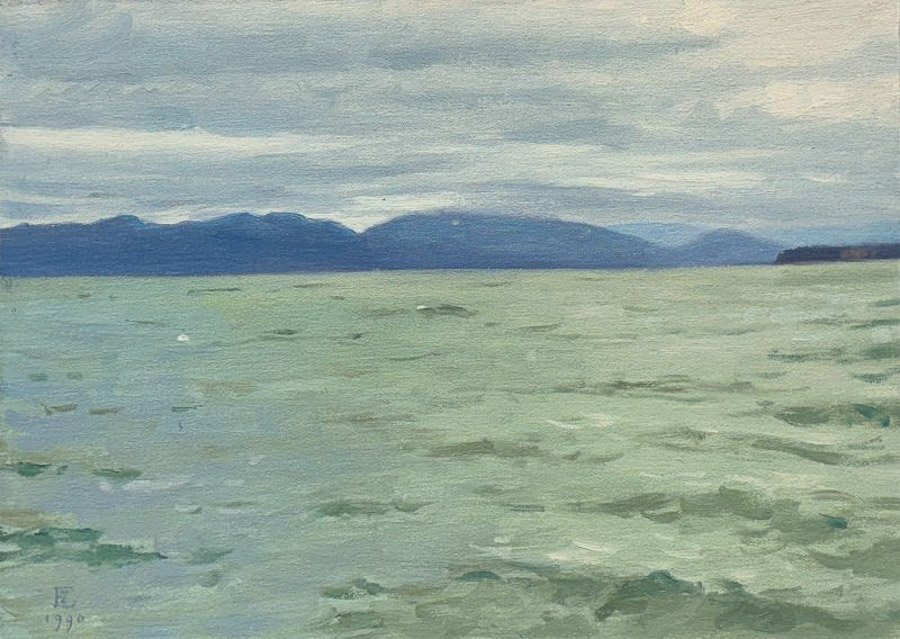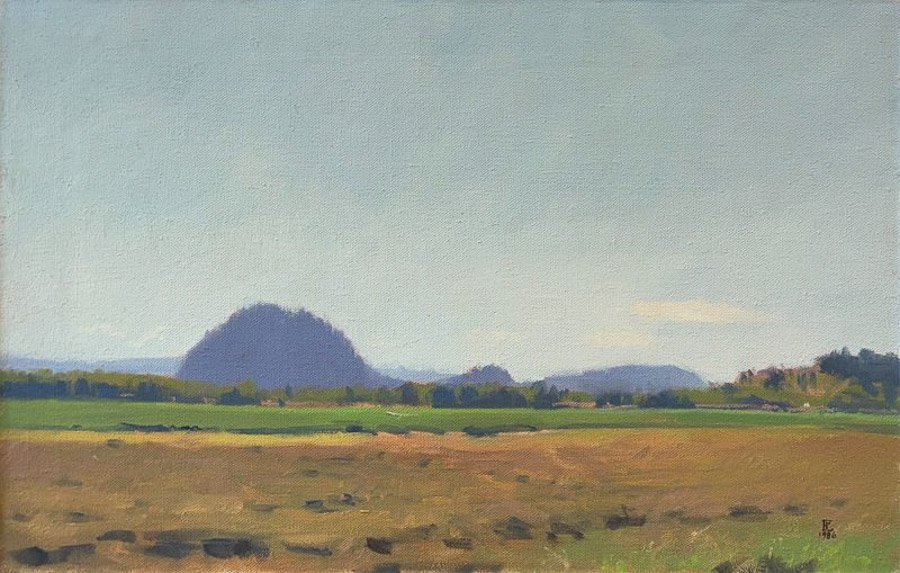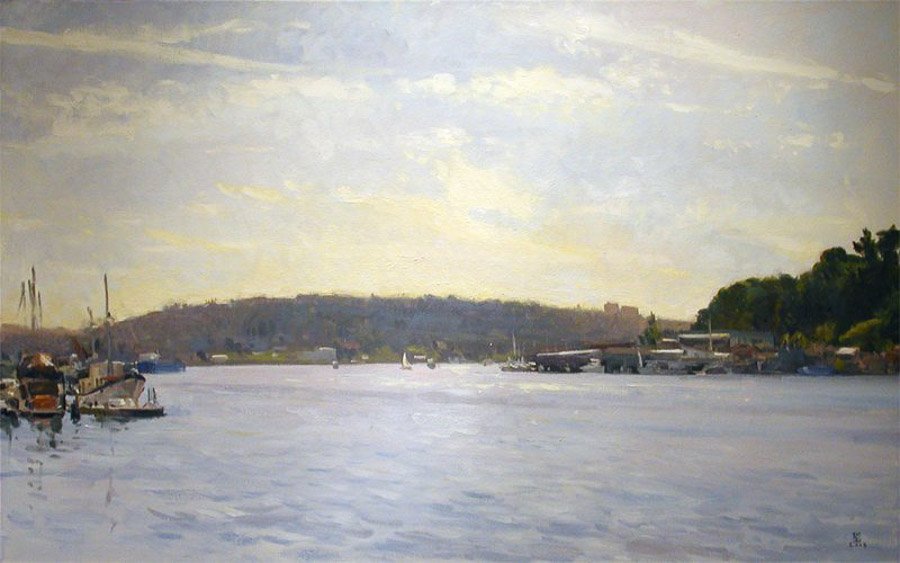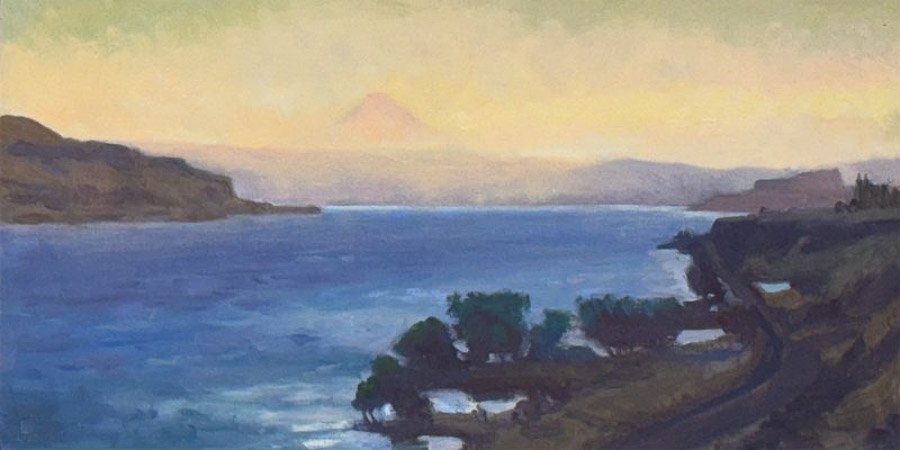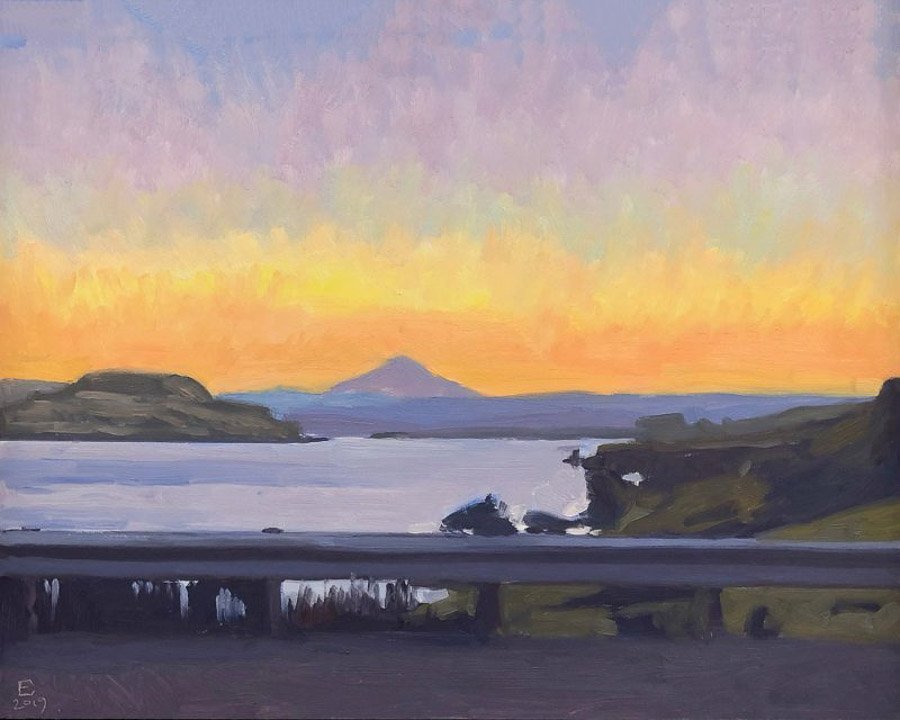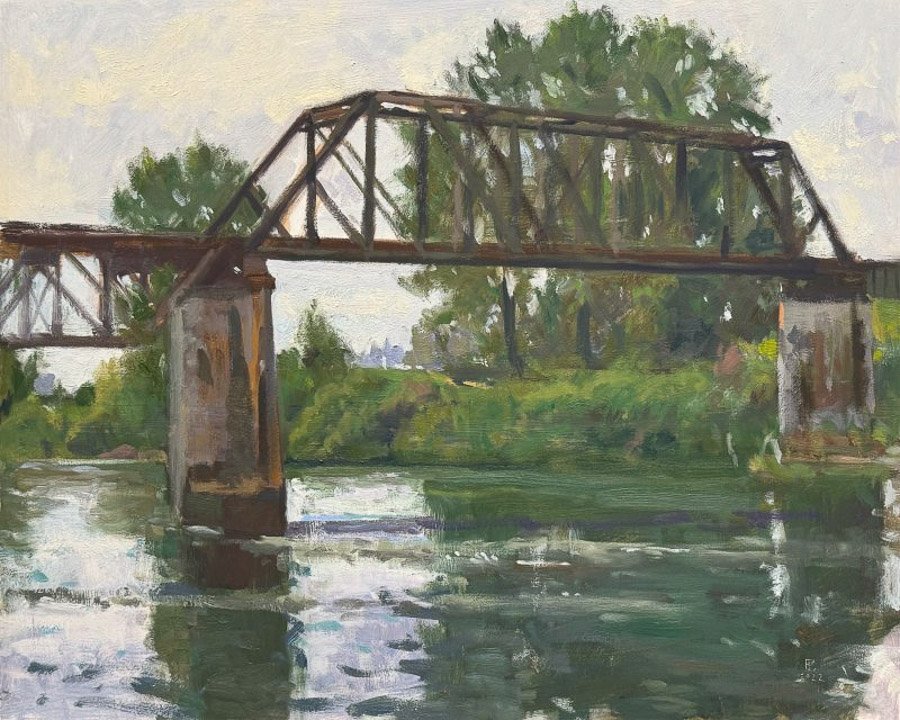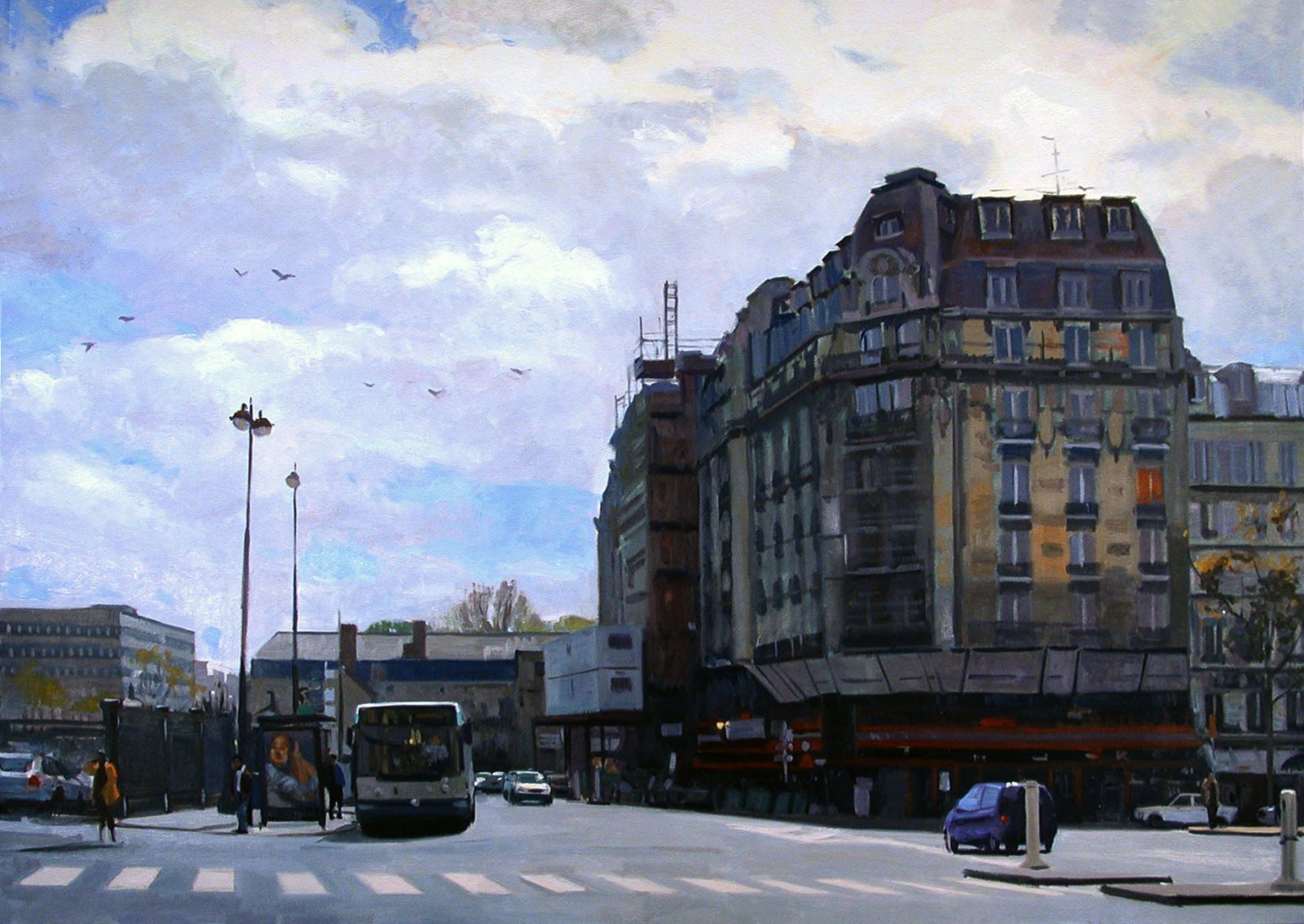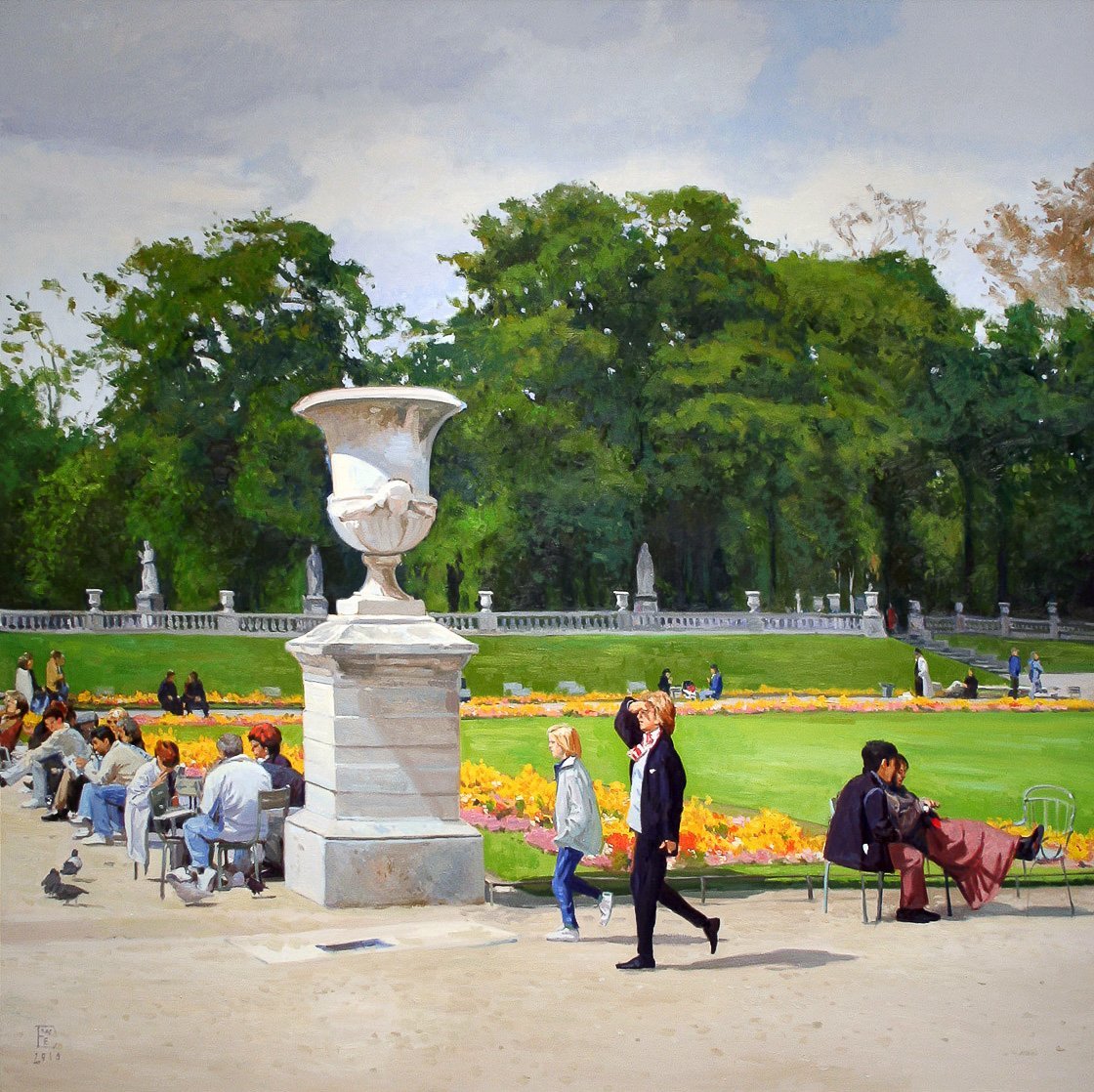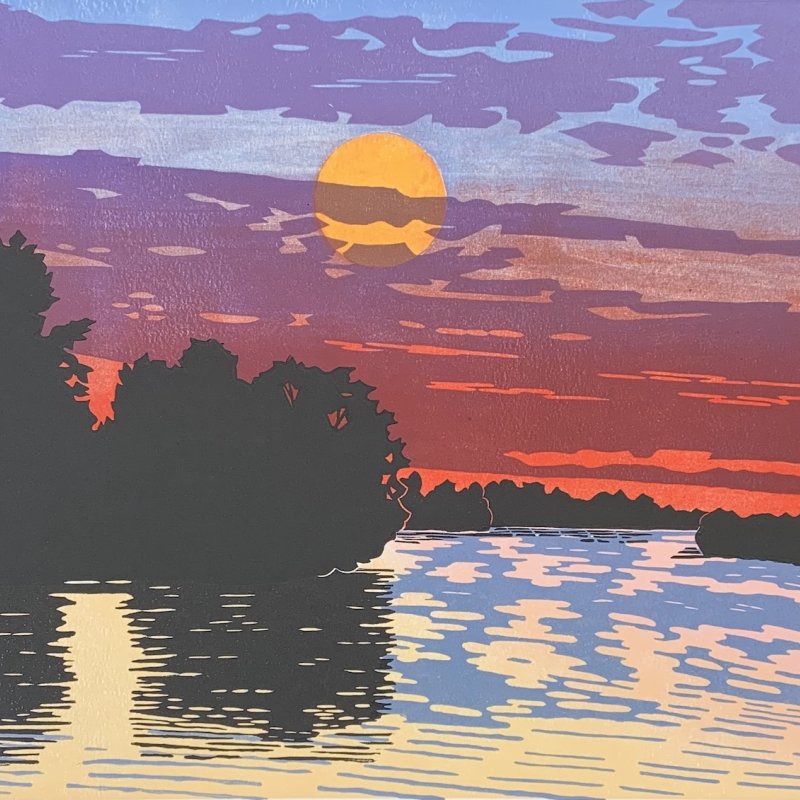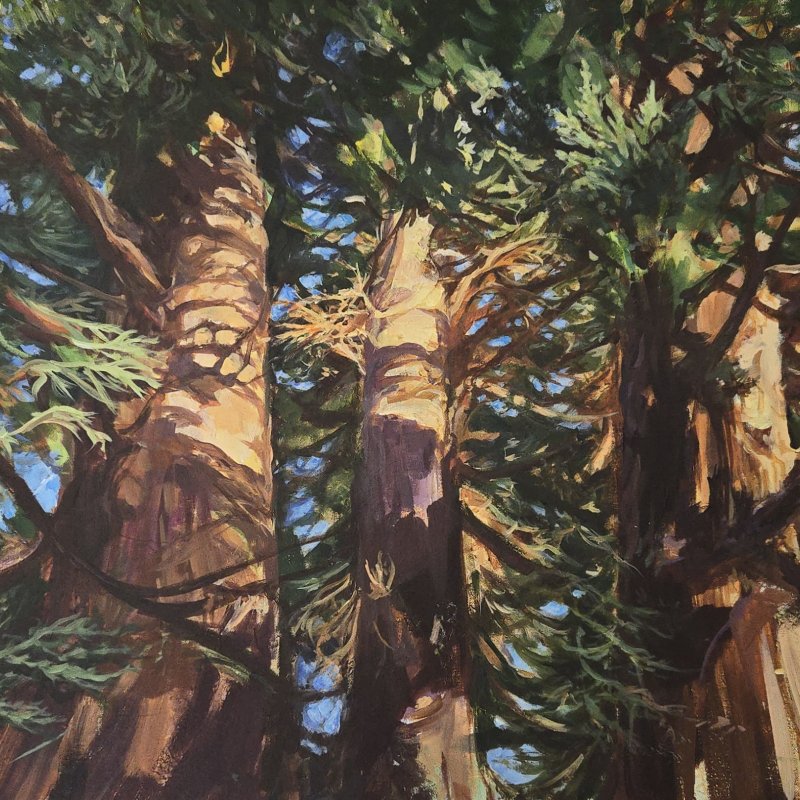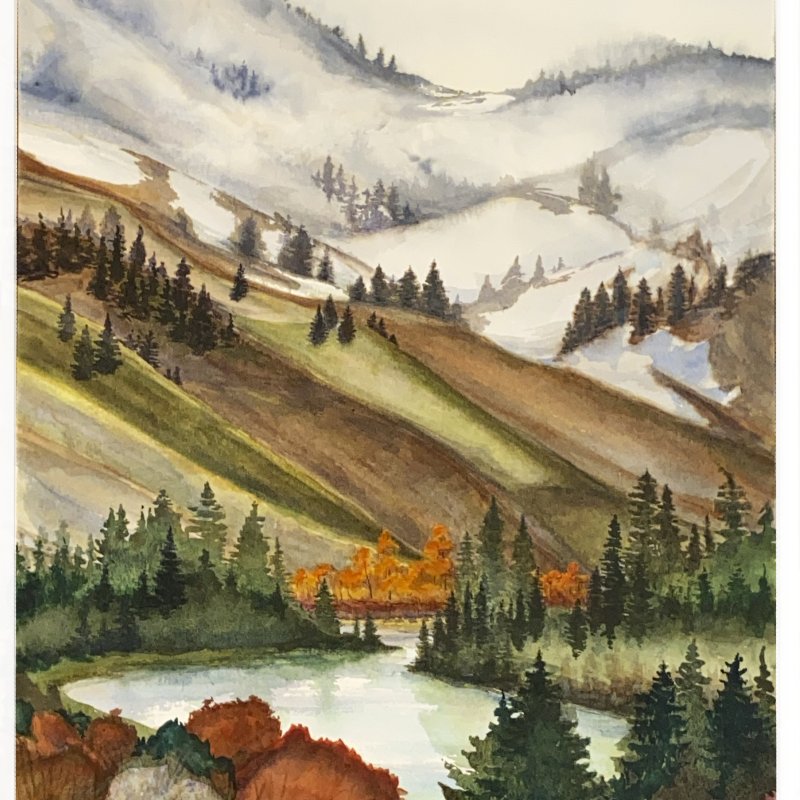William E. Elston is best known for landscape and urban landscape images. He developed the plein air program at the Gage Academy, when it was still called Academy for Realist Art. After parting company with the Academy, he continued teaching en plein air workshops and ongoing classes privately. His work is solidly grounded in traditional practice and the history of plein air, with a contemporary sensibility. In his own words:
"I grew up between small town life, rural farmlands and the city. I've never been completely happy in one environment or the other, but I do find some joy when I explore the relationships between the three. My earliest experiences making art were varied, constructing alligators from paper, scotch tape and kleenex, drawing giants and detectives, and other kid stuff. I don't think I've ever grown out of that world of make believe.
"I began drawing and painting landscapes in high school, often sitting in the woods with charcoal and paper trying to mimic the rhythms of light and shadow, growth and decay. On a trip to Victoria BC I sketched the Empress Hotel, using colored chalk and turpentine washes. Architecture was and is a fascination, but more as a reflection of human intention rather than as feats of engineering. My boyhood interest in puppets and marionettes found echoes in the shallow theatrical space of the street, where freeform improvisational dramas take place all the time. Humans are always engaged in social display, consciously or not. I love literature where the street's chance meetings drive the plot forward, like in the novels of Dickens, Galdós or Zola. I also like travelogues that describe the fragile tapestries of life and land, like Ma Jian's Red Dust.
"I've spent a life painting, often against the grain, and I'm happy to see young people taking up the brush and engaging in very careful looking. Even a static scene can only reveal its riches with the tribute of concentration. I've often thought about the purpose of art, as one also questions the purpose of life. I fall back on Robert Henri's statement, which I can only paraphrase because it's been so long since I first read it: 'Art is how men speak to each other across the centuries.' "
-
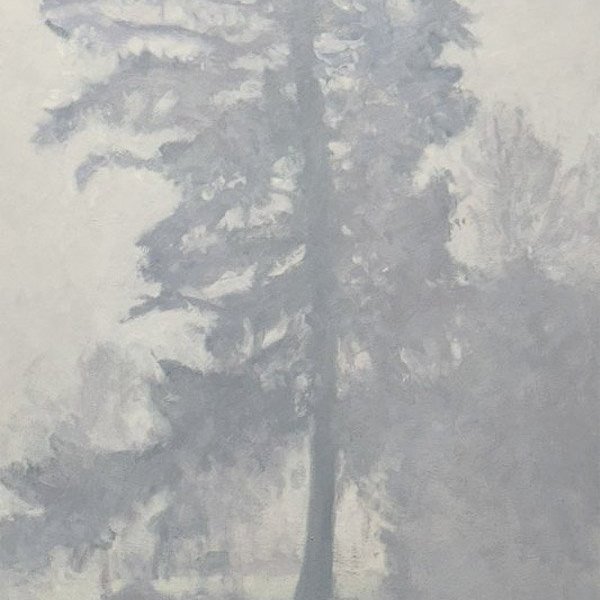
FOG AND EMPTINESS (PANTHER LAKE GARDEN SERIES), oil on MDH panel, 36 x 18 inches, copyright ©2023
-
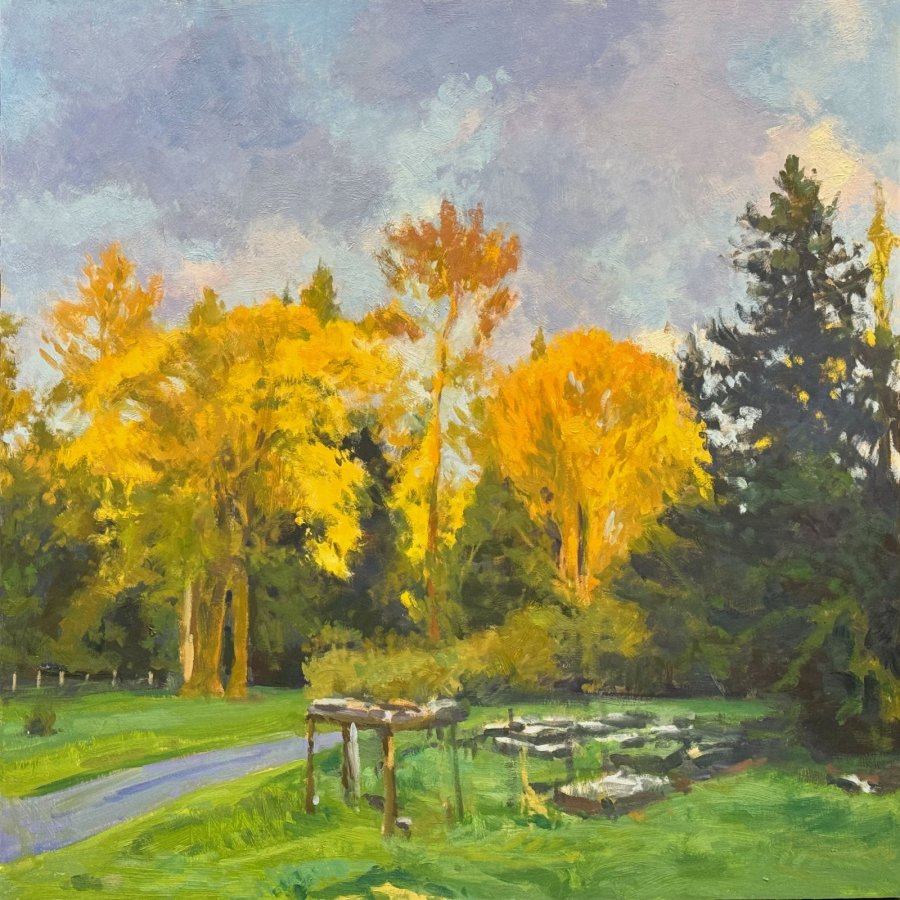
GOOD MORNING, oil on MDH panel, 30 x 30 inches, copyright ©2023
-
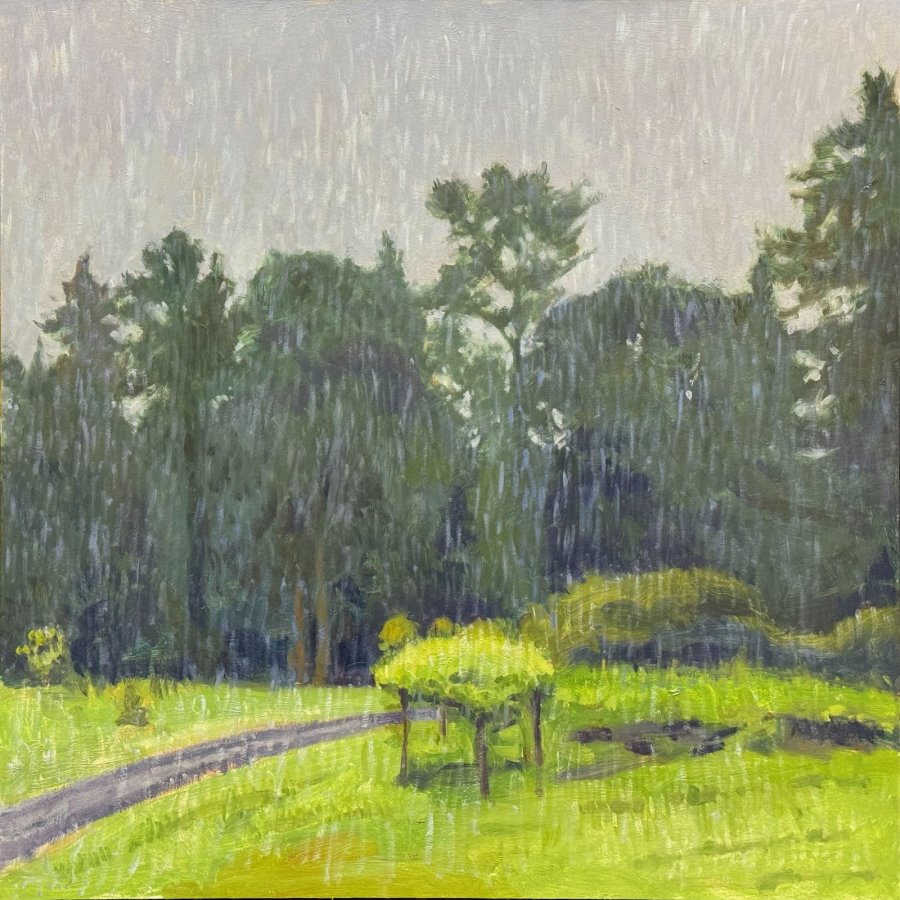
RAIN, oil on MDH panel, 30 x 30 inches, copyright ©2023
-
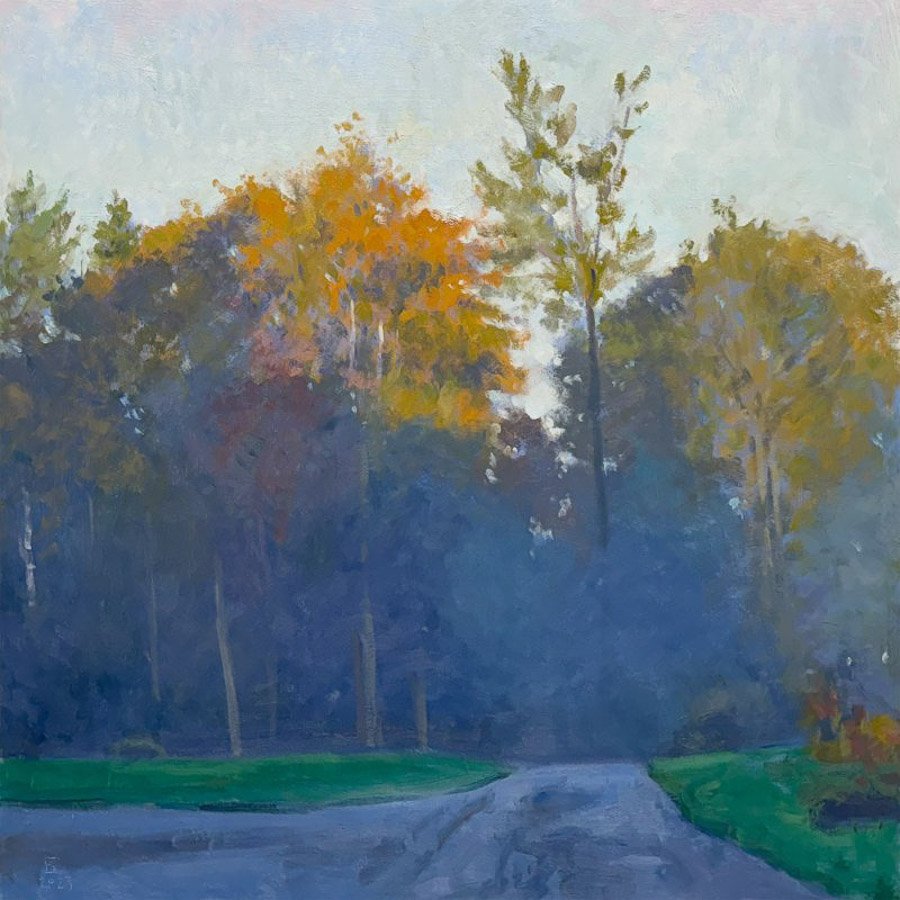
LIFTING MIST (PANTHER LAKE GARDEN SERIES), oil on MDH panel, 30 x 30 inches, copyright ©2023
-
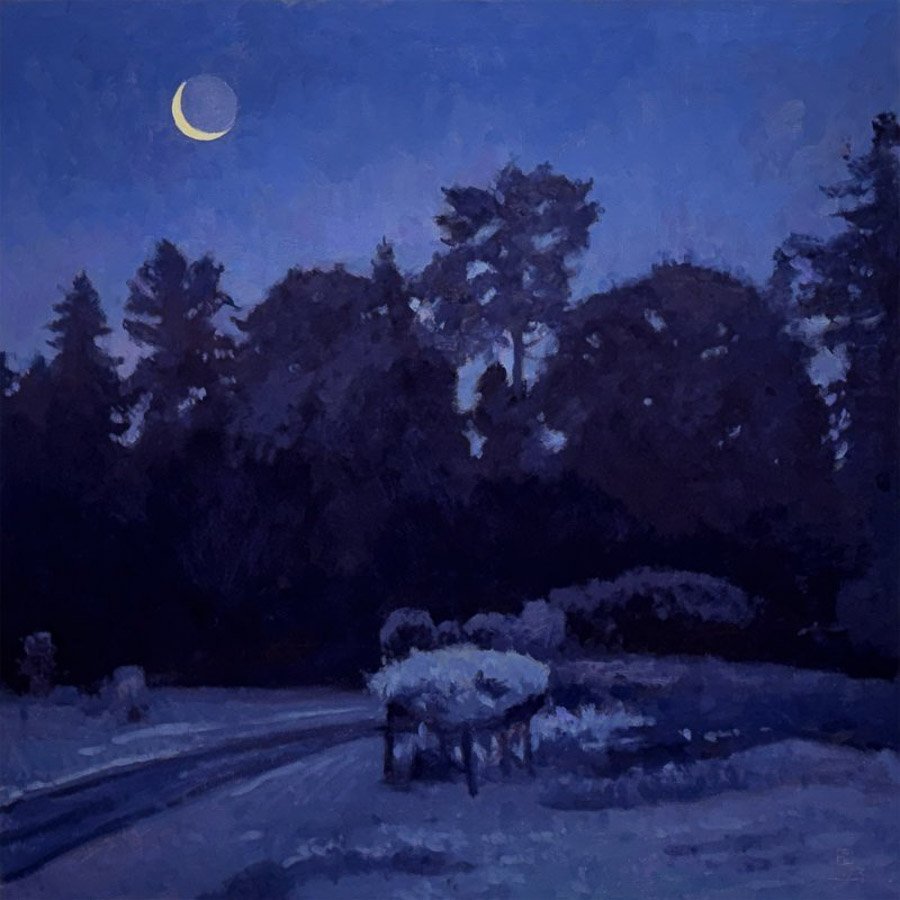
MIDNIGHT (PANTHER LAKE GARDEN SERIES), oil on MDH panel, 30 x 30 inches, copyright ©2023
-
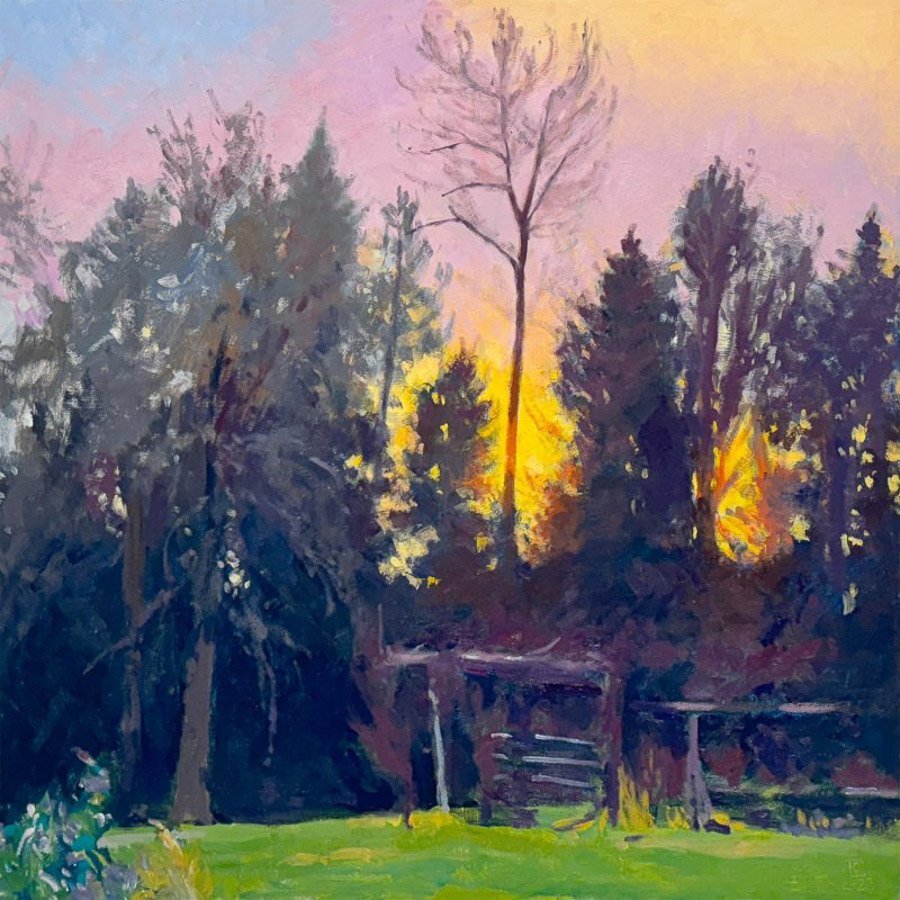
FIREY SUNSET (PANTHER LAKE GARDEN SERIES), oil on MDH panel, 30 x 30 inches, copyright ©2023
-
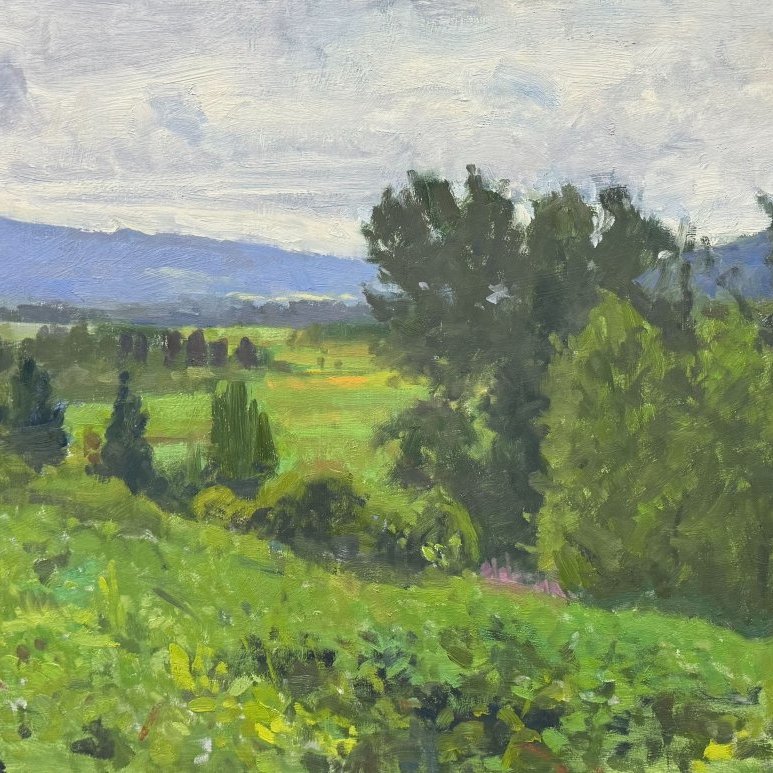
I CAN SEE FOR MILES, William E. Elston, oil on MDH panel, 17 x 36 inches, copyright ©2023
-
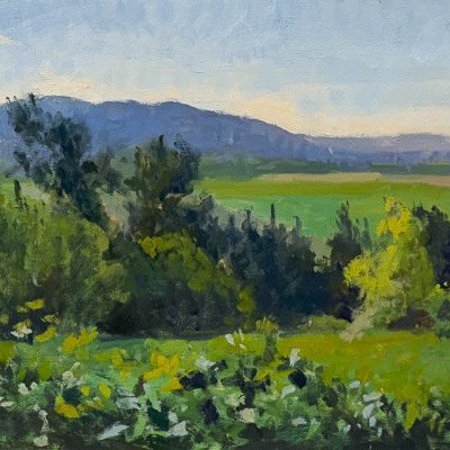
FIELDS AND FOREVER, oil on MDH panel, 18 x 36 inches, copyright ©2023
-

TERRITORIAL WASHINGTON, oil on linen, 36 x 48 inches, copyright ©2023
-
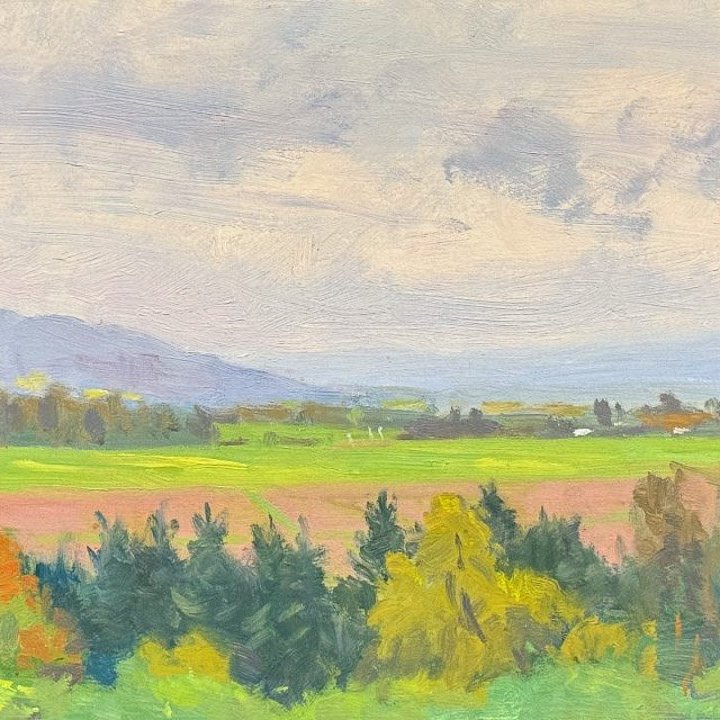
SNOHOMISH VALLEY APUNTE, oil on MDH panel, 8 x 10 inches, copyright ©2018
-
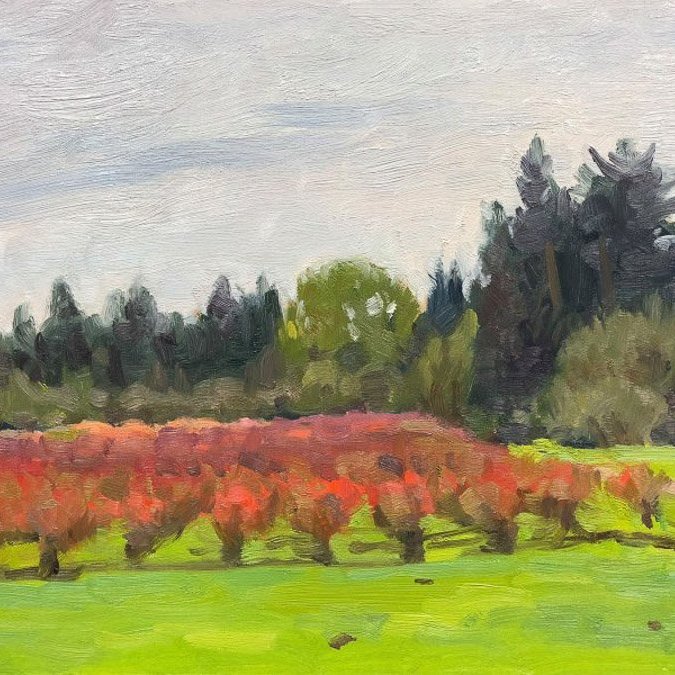
LARSEN LAKE BLUEBERRY FARM, oil on MDH panel, 9 x 12 inches, copyright ©2018
-
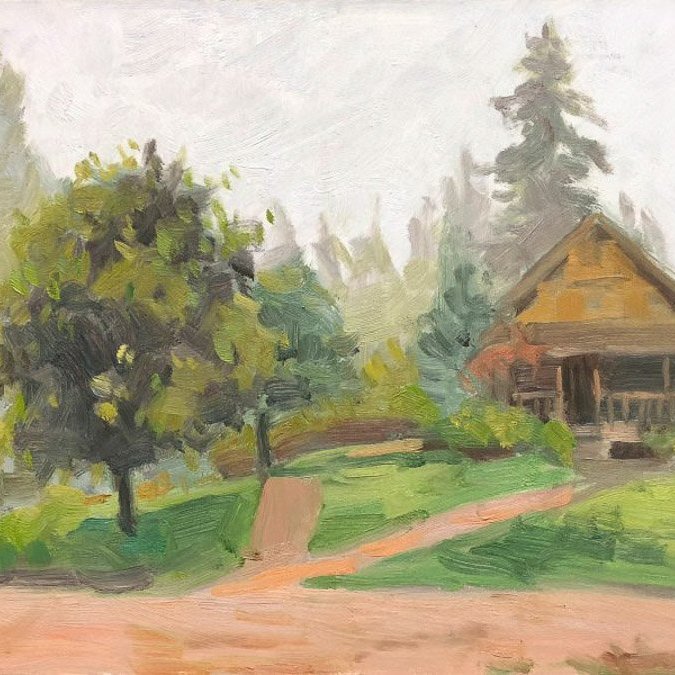
MORNING FOG, LARSEN LAKE, oil on MDH panel, 8 x 10 inches, copyright ©2018
-
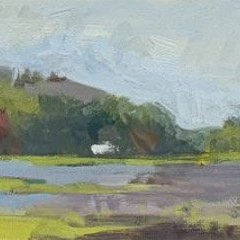
EDMONDS MARSH PANO, oil on ACM panel, 8 x 30 inches, copyright ©2023
-
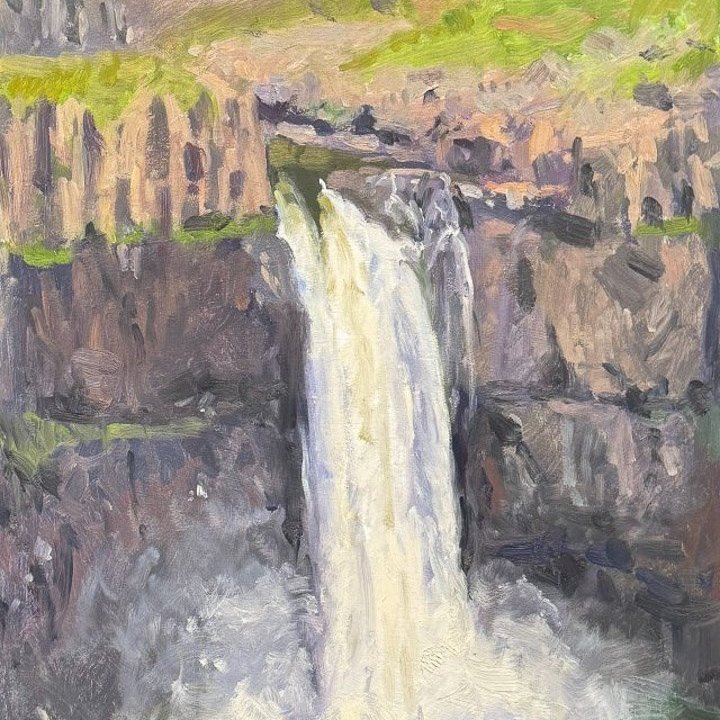
PALOUSE FALLS, oil on MDH panel, 20 x 16 inches, copyright ©2022
-
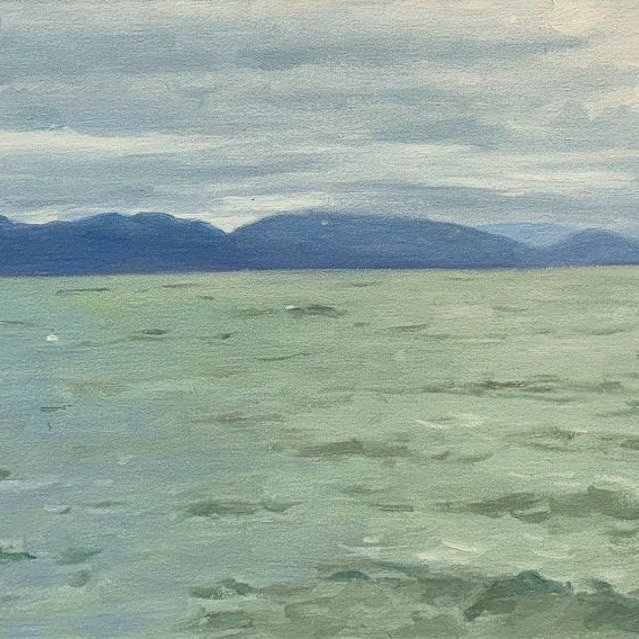
PUGET SOUND, oil on canvas, 11 x 15.5 inches, copyright ©1990
-
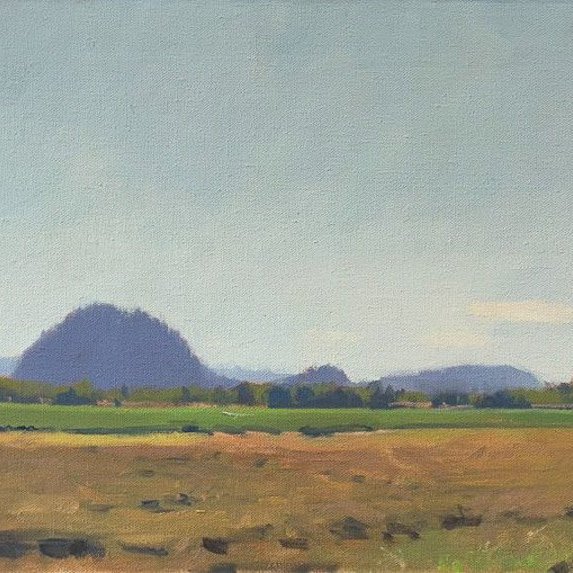
IKA ISLAND, oil on canvas, 14 x 22 inches, copyright ©1986
-
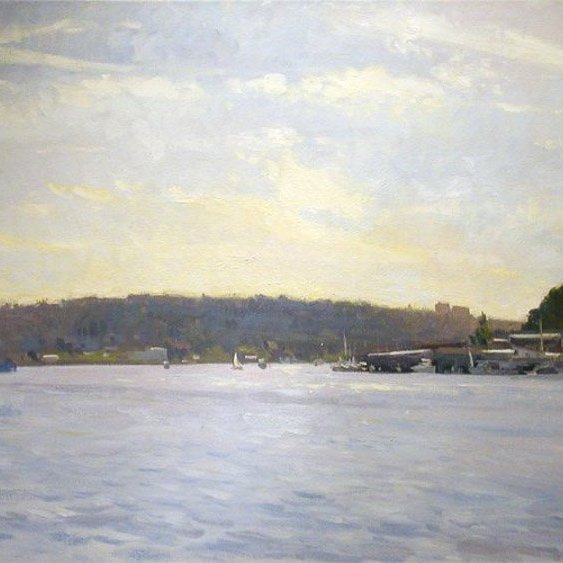
LAKE UNION, oil on canvas, 30 x 48 inches, copyright ©2003
-
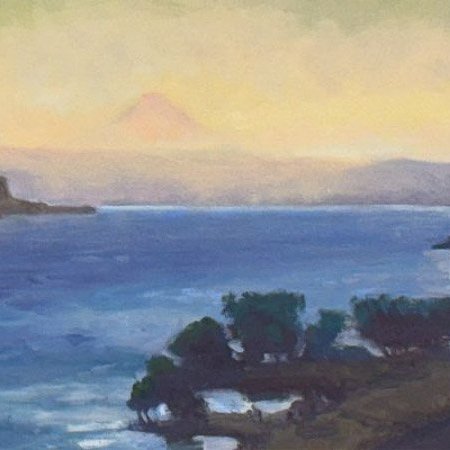
FADING MOUNTAIN, oil on MDH panel, 16 x 20 inches, copyright ©2023
-
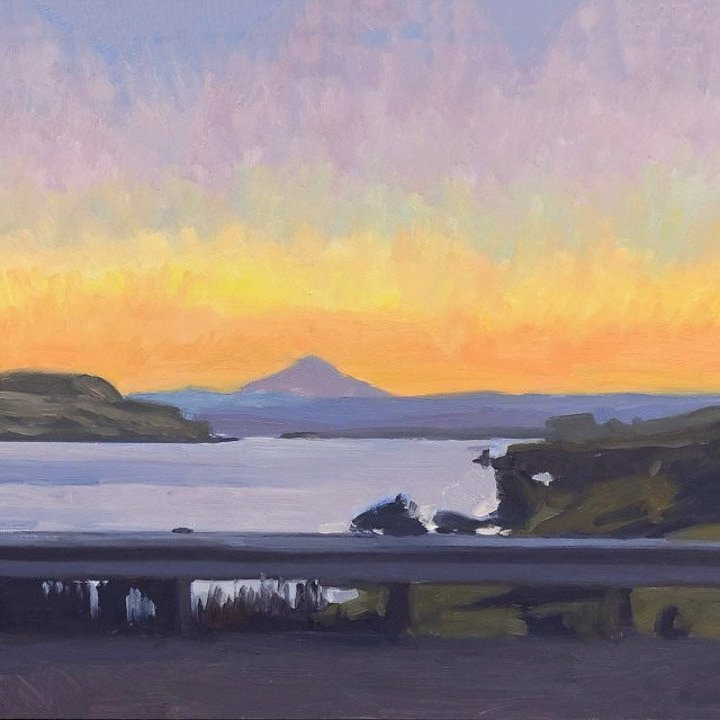
HWY 14 PULLOUT, oil on MDH panel, 16 x 20 inches, copyright ©2019
-
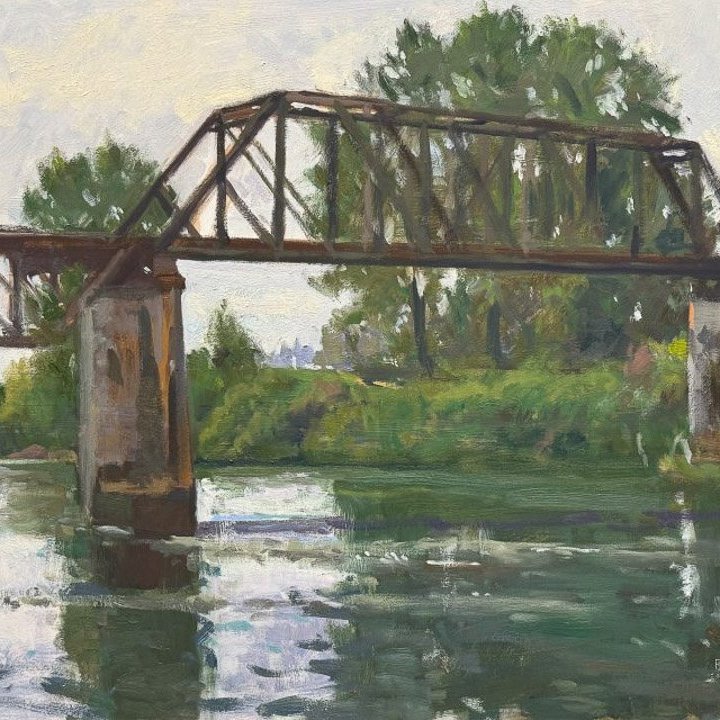
CADY PARK 2, oil on canvas, 16 x 20 inches, copyright ©2022
-
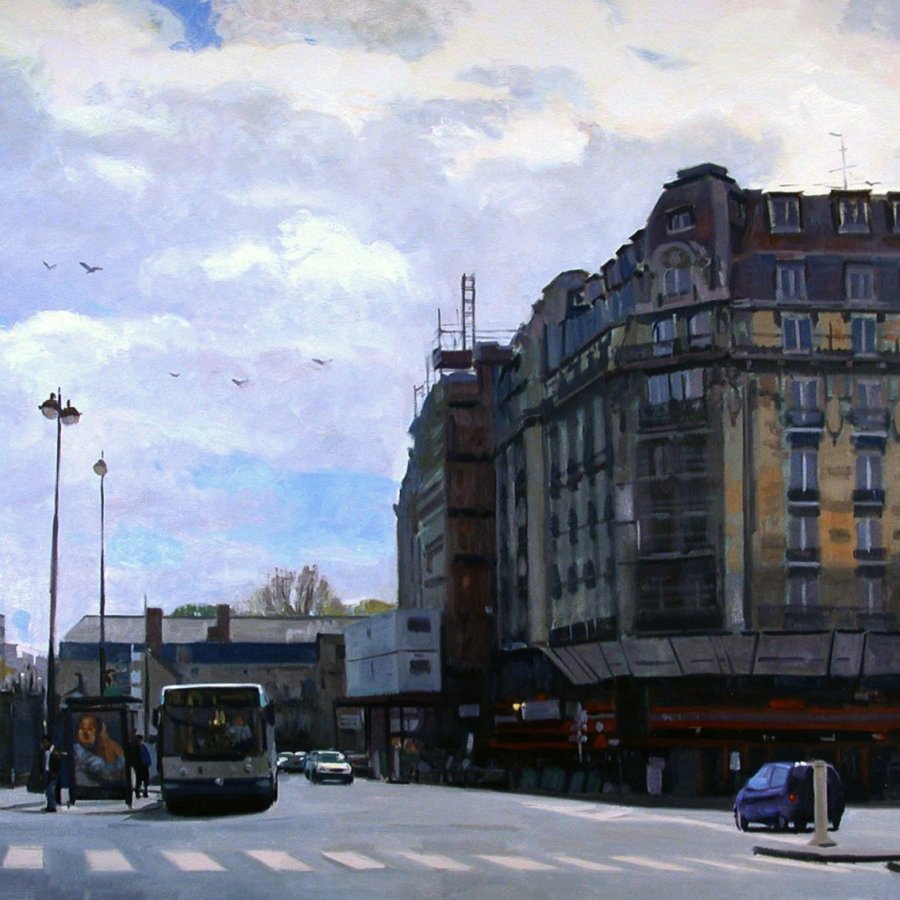
NEAR THE GARE DE L'EST, oil on canvas, 52 X 72 inches, copyright ©2004
-
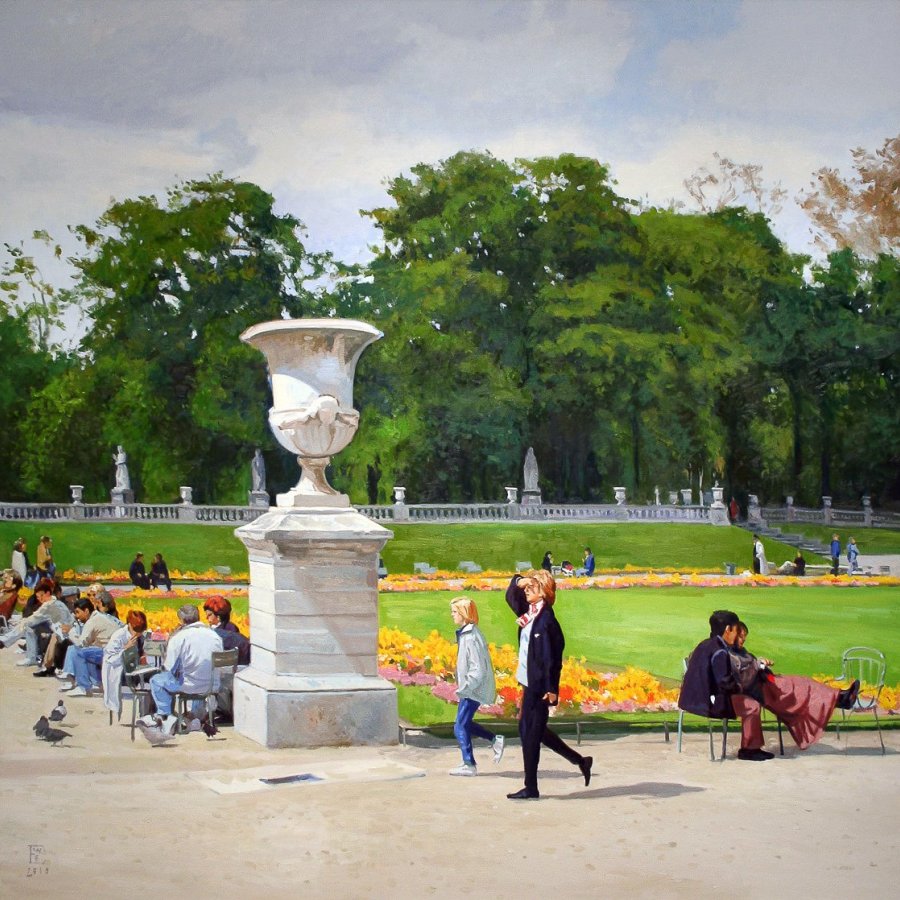
LUXEMBOURG GARDENS, (LOVE IN PARIS), oil on canvas, 72 X 72 inches, copyright ©2010
Most recent exhibitions
Works pictured may be currently available.
Purchase inquiries are welcome.
Rick Leonard Gallery represents some of the finest artists of the Pacific Northwest.
